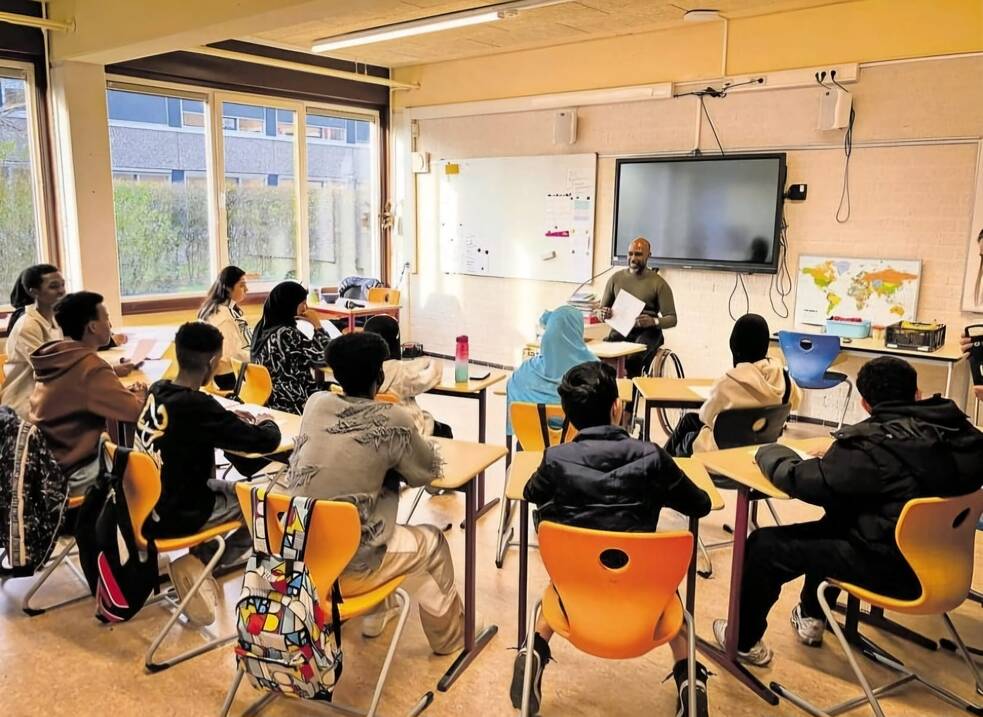ISK Piter Jelles – School Profile

The school fosters a safe and inclusive learning environment that values cultural diversity. While the primary focus is on learning Dutch, ISK recognizes the importance of heritage languages (HL) in students' cognitive development and identity. The school supports HL education alongside Dutch, ensuring that students can maintain their linguistic and cultural connections while acquiring new skills.
ISK is located in Friesland, a region where Frisian holds an official status alongside Dutch. As a bilingual province, Friesland provides unique insights into multilingualism, which ISK integrates into its educational philosophy.
Interview with Marsha Olyerhoek ‒ Team Leader at ISK Piter Jelles
(The interview was shortened to make it easier to read.)
Could you please describe your role and responsibilities as the teacher coordinator at ISK Piter Jelles?
As a team leader of the ISK, I am responsible for the quality of education, the organization of my location, and personnel policy. To me, “Your Language Counts!” is a beautiful project to start our journey towards including more languages in our education and celebrating multilingualism. The teachers are in the lead; I am in the background to support and facilitate this project.
How does ISK incorporate students' heritage languages into its educational approach, and what importance does the school place on HL (Heritage Language)?
Language is an important element of your identity. By offering the opportunity to receive lessons in your heritage language, we are taking a first step towards making these languages more visible in our school. We are also looking for more opportunities to include these languages in regular NT2 lessons (NT2 = Dutch as a second language), since we are still at the beginning of this.
Could you explain the HLE (Heritage Language Education) concept at your school?
As part of the project, we have 4 teachers for our HLE program at this point. They teach Arabic, Persian, Ukrainian, and Somali. Our students participate in the lessons on a voluntary basis, but we expect them every week once they have registered. Currently they can attend a class once a week.
In which grades or classes is HLE offered at ISK?
We have opened the lessons to all students from all three locations; it doesn't matter how long they have been with us or how old they are. Students usually attend our school for 1.5 - 2 years, and we want to give everyone the opportunity to take these lessons. Only for Arabic, these lessons are currently limited to students from one of our three locations for logistical reasons. It will probably be possible to offer these lessons to all students at a later stage.
What do you see as the biggest advantage of HLE for the students and the school as a whole?
It is of great value for our students to learn more about their own language, culture, and identity. It ensures connections between students from different groups with the same background. As a school, it makes us realize how important it is that there is a place for your own language and that it makes you feel good. It enriches us!
From your personal perspective, how does integrating HL influence the learning environment and school community?
It is so nice to see that students have fun with each other during these HLE lessons. As a Frisian, I understand all too well how important language is to you and how fun it is to share it with each other and play with it. I look forward to further shaping and expanding this education and giving it a permanent place in our school.
What is the school’s long-term vision for promoting HLE?
I notice that in the Netherlands more and more attention is being paid to the benefits of multilingualism. Because we think it is very important that students feel good about themselves and we think that this project has a positive effect on this, we would like to investigate how we can give HLE a permanent place in our school. And don't forget that HLE also strengthens language development. We are therefore very curious about what we can learn from our colleagues in Sweden and Finland in this area during this school year and what we can adopt from them.